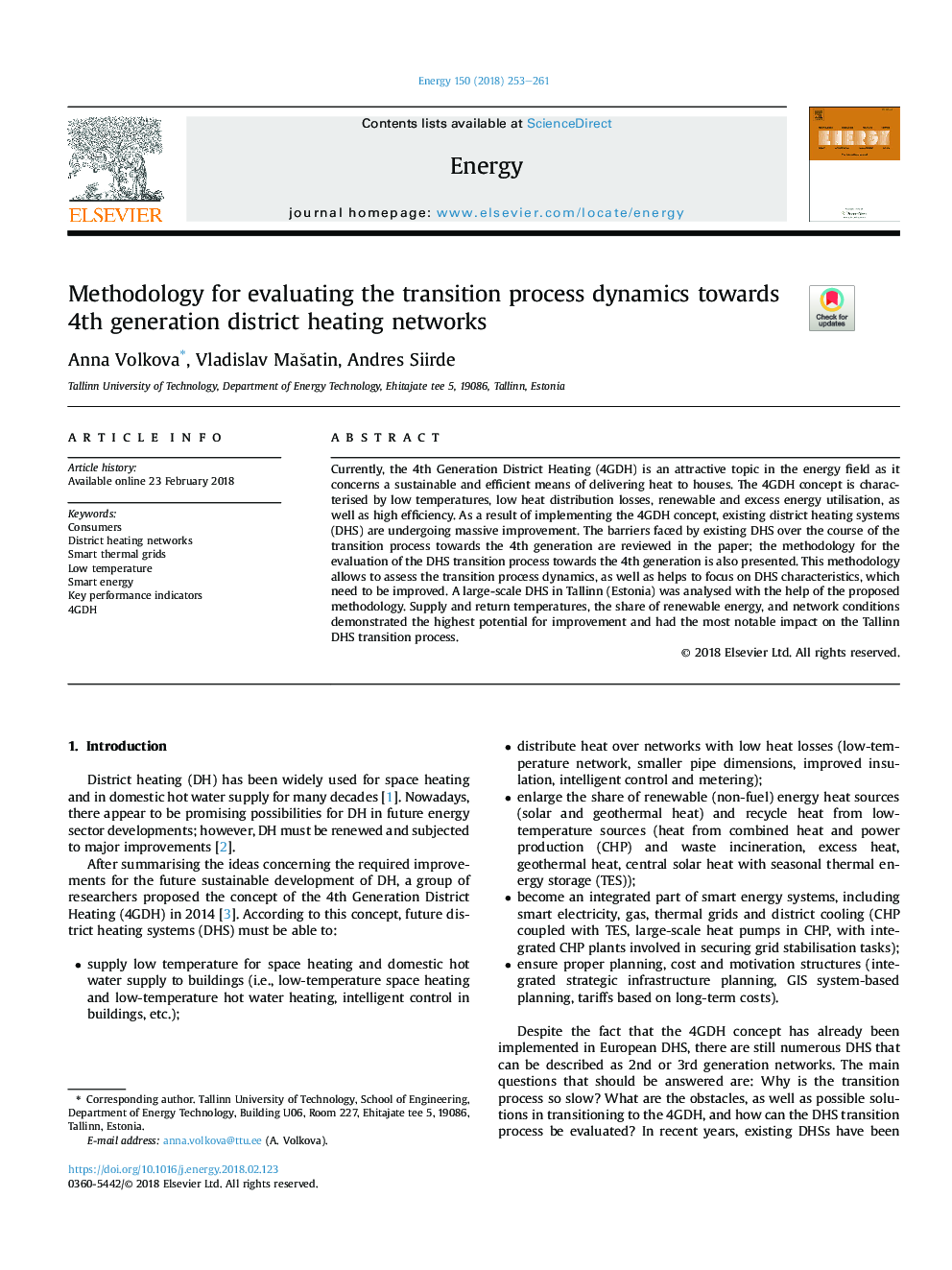| Article ID | Journal | Published Year | Pages | File Type |
|---|---|---|---|---|
| 8071929 | Energy | 2018 | 9 Pages |
Abstract
Currently, the 4th Generation District Heating (4GDH) is an attractive topic in the energy field as it concerns a sustainable and efficient means of delivering heat to houses. The 4GDH concept is characterised by low temperatures, low heat distribution losses, renewable and excess energy utilisation, as well as high efficiency. As a result of implementing the 4GDH concept, existing district heating systems (DHS) are undergoing massive improvement. The barriers faced by existing DHS over the course of the transition process towards the 4th generation are reviewed in the paper; the methodology for the evaluation of the DHS transition process towards the 4th generation is also presented. This methodology allows to assess the transition process dynamics, as well as helps to focus on DHS characteristics, which need to be improved. A large-scale DHS in Tallinn (Estonia) was analysed with the help of the proposed methodology. Supply and return temperatures, the share of renewable energy, and network conditions demonstrated the highest potential for improvement and had the most notable impact on the Tallinn DHS transition process.
Keywords
Related Topics
Physical Sciences and Engineering
Energy
Energy (General)
Authors
Anna Volkova, Vladislav Mašatin, Andres Siirde,
